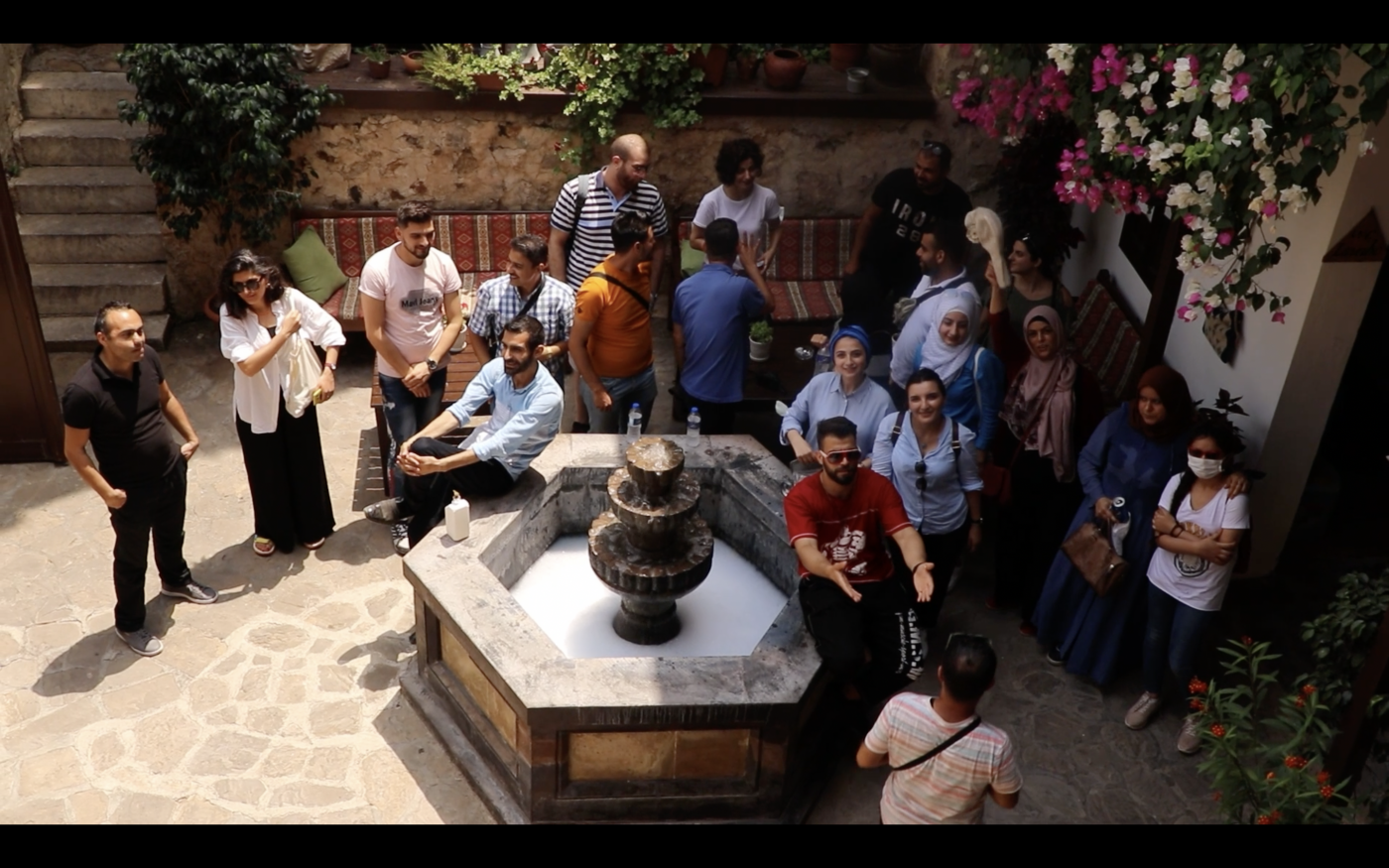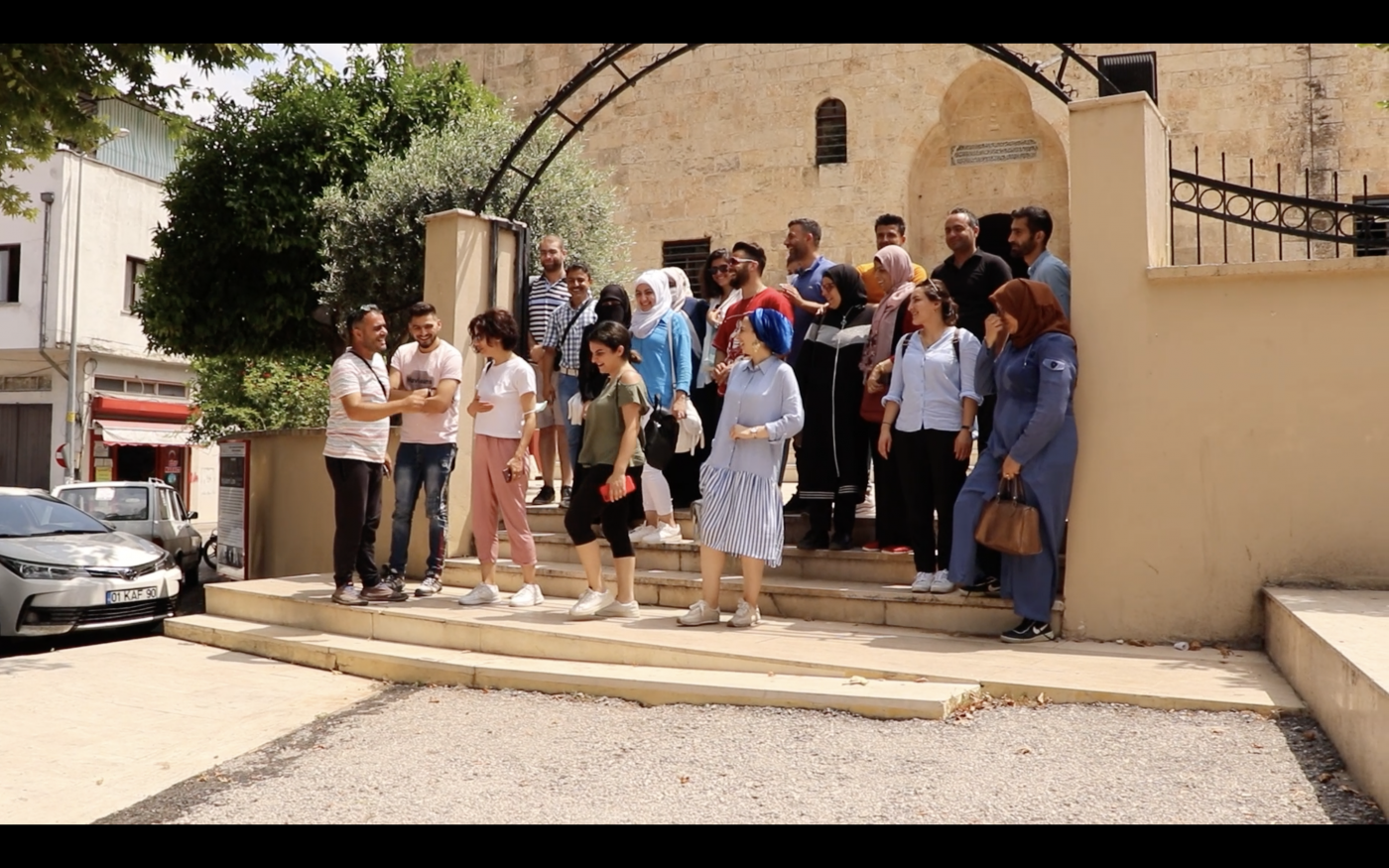The team aims to bring together the previous and current inhabitants for a series of community-involved heritage preservation and management activities including workshops, trainings in methods of documentation and dissemination of knowledge. These included meetings with non-governmental and publishing organisations and heritage researchers:
The project team paid visits to Hrant Dink Foundation, an Istanbul-based NGO that carries out projects on Armenian heritage in Turkey.
Meetings with historian and heritage expert Osman Köker, a collectionner and researcher based in Istanbul who runs Birzamanlar Yayıncılık, a publishing house that publishes titles related to the non-Muslim minority cultures in Turkey.
Project Outputs
Collaboration with the Seyhan Municipality Center for Women’s Solidarity. This centre aims to support local and immigrant women through activities providing them with basic needs for economic independence. The centre enabled the team to contact and conduct interviews in Adana and Mersin with members of immigrant communities.
A research tour to Kozan, located in Adana province guided by a local historian. This was a key visit due to many high value cultural heritage historic sites located there, including a religious complex, medieval castle, remains of buildings belonging to Armenian families and Islamic structures. Information regarding the modern immigrant community living in the town was also gathered during this visit and it was understood that due to socio-economic and political pressure, the majority of immigrants were forced to leave this small town for a big city (i.e. Mersin or Adana).
In a Zoom meeting held in August 2020, project investigators introduced the Historical Memory, Heritage, and Cultural Identification amongst Displaced Communities in Cilicia and the Northern Levant project to a wider community of archaeologists and heritage experts from Turkey and abroad, including the members of Şirince Archaeological Association. Participants discussed possible collaborations related to the project as well as helped in determining details of interview procedures and the nature of the end of project workshop. This meeting motivated several members of the association and other scholars to conduct similar projects in other parts of Turkey, which the association will be supporting if realized.
Mersin workshop on Cilician cultural heritage. The city of Mersin has a strong historic importance as a multicultural harbor town, which traditionally housed not only Armenians, Arabs and Greeks, but also European communities involved in international trade. The city has a very big immigrant community to this day. Project team members, members of immigrant communities who were interviewed as a part of the project from Adana, Mersin and Lebanon, together with academics and local enthusiasts attended the workshop. This enabled young members of Syrian and Iraqi (mainly Arab and Kurdish) communities to form direct, physical contact with members of communities whose ancestors (mainly Armenian and Assyrian but also Christian Arab) had to leave Cilicia and the surrounding regions during the past century. The workshop and visits to certain locations of historic importance not only allowed them to learn more about local history and sites of cultural heritage, but it also allowed them to discuss relevant issues with members of other communities and the project team, and it was decided that a long-term platform of communication is to be established through which new collaborative projects can be initiated. Visit following link to watch a short video on the Mersin workshop.



To learn more about this project, visit their website and Facebook page.
 Close
Close

